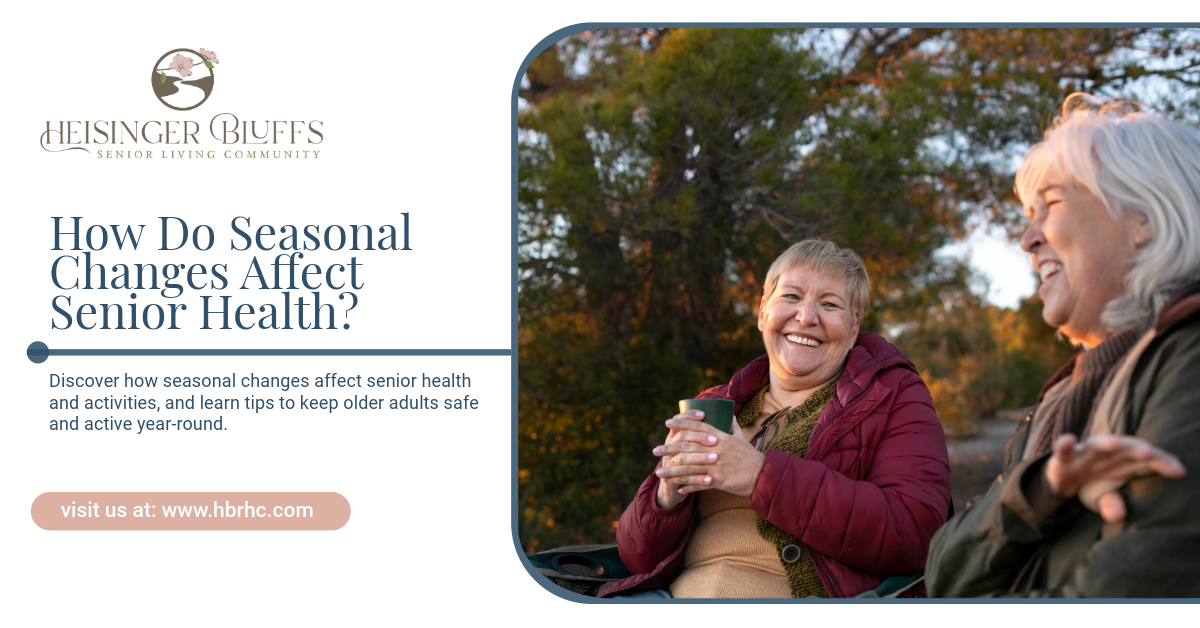How Do Seasonal Changes Affect Senior Health?

Seasonal changes can significantly impact senior health and daily activities. Cold winter months increase the risk of slips, falls, and illnesses like flu, while limited sunlight may contribute to seasonal affective disorder (SAD). Hot summer days can lead to dehydration, heat exhaustion, or worsened chronic conditions.
Weather shifts also influence activity levels. In colder months, seniors may be less active due to icy conditions, while warmer months allow for more outdoor socialization and exercise. However, extreme heat can limit outdoor time.
To maintain well-being year-round, seniors benefit from seasonal adjustments—indoor exercises in winter, hydration and shade in summer, and proper clothing for all weather.
At Heisinger Bluffs, we create safe, engaging seasonal activity plans that promote health, comfort, and enjoyment in every season.
Frequently Asked Questions
How can seniors stay active in winter?
Indoor fitness classes, walking groups, and hobbies help maintain mobility.
What precautions should seniors take in summer?
Stay hydrated, wear light clothing, and avoid peak sun hours.
Can seasonal changes affect mood?
Yes, reduced sunlight can impact mood; light therapy may help.
Sources:
- https://pmc.ncbi.nlm.nih.gov/articles/PMC10487240/
- https://pmc.ncbi.nlm.nih.gov/articles/PMC6877915/











